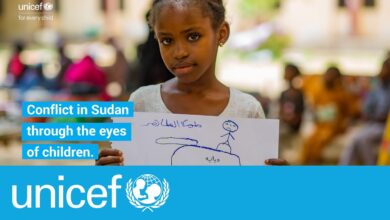Revitalizing development coordination in Uganda: An RC perspective

As the world passes the half-way point towards the 2030 deadline for achieving the Sustainable Development Goals (SDGs), many countries are lagging behind in their SDG commitments. Uganda, where I serve as the UN Resident Coordinator, is no exception.
A recent mid-term review of the Third National Development Plan – the framework for implementing the SDGs in Uganda- revealed that only 17 percent of its targets have been achieved so far. The obstacles to reaching these goals and building long-term sustainable development for all are wide-ranging, from its rapidly growing population, high levels of poverty and the increasing vulnerability to the effects of climate change. The recent upheavals of the COVID-19 pandemic, the war in Ukraine and the rising cost of living have set Uganda’s SDG progress even further off-course.
To overcome these challenges and deliver the development results at the scale Uganda needs, a change of course is required. For our UN team and Government partners, the answer lies in improving coordination and strengthening the culture of inclusiveness and collaboration between the UN, the Government and different national partners.
Caption: UN Resident Coordinator in Uganda, Susan Ngongi Namondo, says that improved coordination and stronger partnerships are key to boosting progress towards the SDGS.
Photo: © UN Uganda
Building on strong foundations
Coordination doesn’t work the same way everywhere. The truth is that effective coordination depends on getting the small details right, including at the institutional level, in a manner that delivers results for all.
At the policy level, there are a number of important coordination mechanisms already in place. Uganda’s third National Development Plan (NDPIII) for example, emphasizes the importance of inclusive partnerships in the country’s journey to sustainable development. From this, the Government set up the National Coordination Framework for implementation of the 2030 Agenda which outlines the roles and responsibilities of the key institutions, including non-state actors. This is particularly important now as the availability of development financing from traditional donors is shrinking. In Uganda this means that development coordination needs to go further; delivering maximum results with the same level of investments.
With preparations for the fourth National Development Plan now underway, here are three approaches that effective development coordination can bring Uganda closer to its vision of inclusive and sustainable development:
1. Encouraging strong government ownership
First and foremost, the process of refreshing the development coordination and partnership structures must be under the full stewardship of the Government of Uganda. At the same time, building trust with all partners will require long-term commitment by all cooperation actors.
The Prime Minister of Uganda, H.E Ms. Robinah Nabbanja, has already demonstrated the Government’s leadership through her current efforts to collaborate with the United Nations and other partners to revitalize Uganda’s development cooperation and partnership framework that had been inactive for several years prior. The successful National Partnership Forum held in November 2023 and adoption of the roadmap for strengthening the National Partnership Dialogue framework are testament to this renewed direction. During this process, I played a key role as the Resident Coordinator in rallying development partners together to engage with the Government through the Local Development Partners’ Group.
2. Monitoring and accountability
Coordination can only deliver results if there is an effective monitoring and evaluation framework that shows what is and isn’t working and provides a process to course correct. It should stipulate the principles of partnership, define the responsibilities of the various actors in achieving the binding results and progress assessed and reported regularly. Such a framework should not only be on paper but fully enforced to help address key coordination and strategic issues.
Caption: To strengthen coordination and advance progress towards the SDGs in Uganda, the RC explains the importance of enhancing dialogue between all partners, including non-traditional development partners, the private sector and civil society.
Photo: © UNICEF Uganda
3. Inclusive decision-making and fostering partnerships for change
As the development landscape and actors evolve, existing coordination structures need to be updated. Many partners, including non-traditional development partners, private sector and civil society, have not had the opportunity to participate in a structured, open and transparent partnership dialogue. Their involvement would improve the quality of ideas and potential solutions to sustainable development challenges as outlined in the Global Partnership for Effective Development Cooperation. This calls for a common standard of inclusiveness in order to find ways to engage the missing groups and set up a system of representation to ensure that the views of different stakeholders are considered in the decision-making process.
The Uganda Partnership Policy (2013) is an important foundation for promoting effective development cooperation across the country, but one that needs to be adapted to meet the challenges of today. Most importantly, as this policy review gets underway, authorities should ensure full alignment with other national policies and institutional coordination structures to accelerate progress on the 2030 Agenda.
This blog was written by the UN Resident Coordinator in Uganda, Susan Ngongi Namondo. To learn more about the work of the UN in Uganda visit uganda.un.org
Source link




